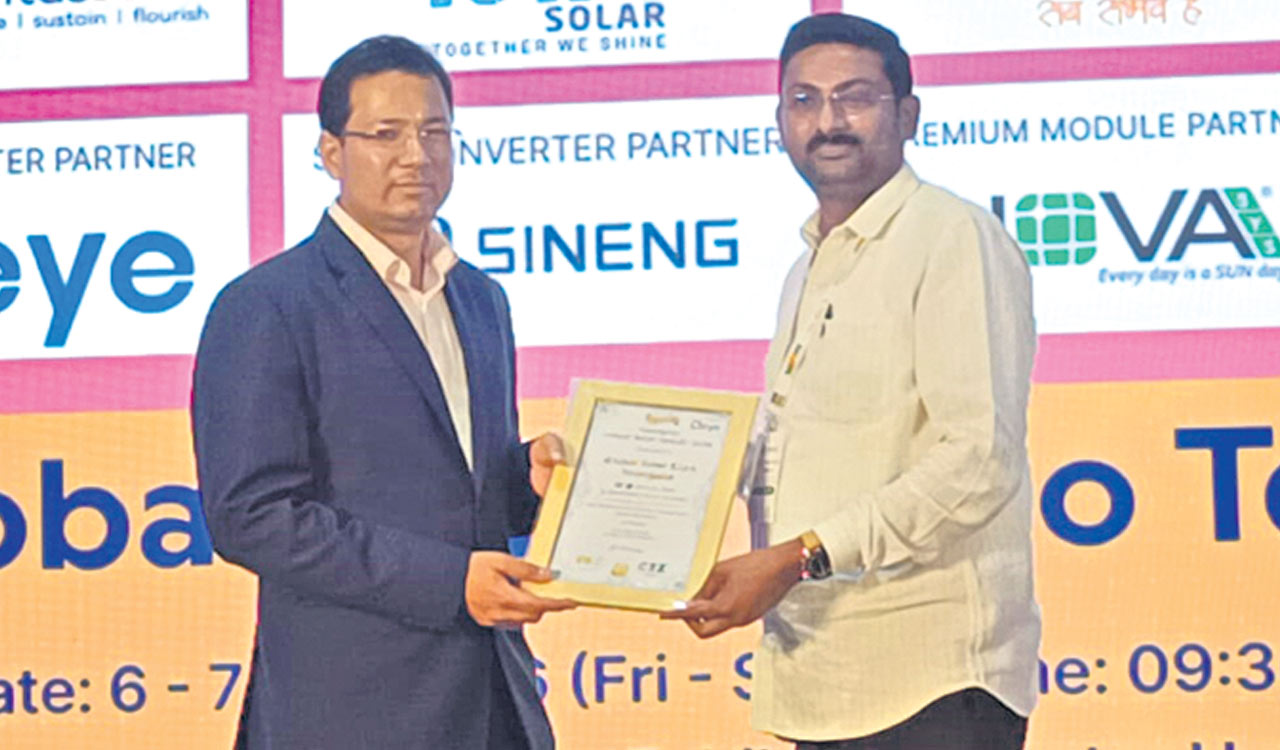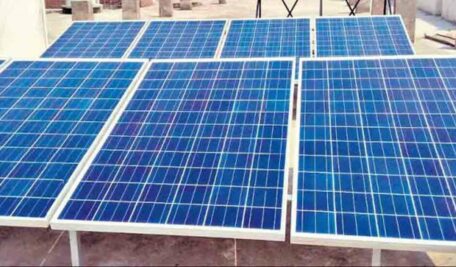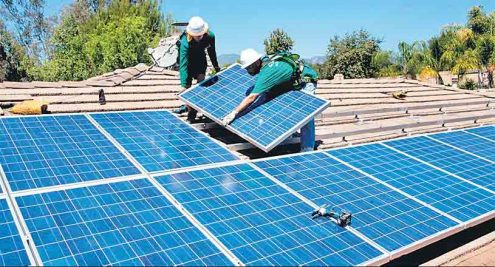Delay in releasing solar scheme subsidies causing unrest among consumers
To boost solar adoption in the country and meet the increasing electricity demand, the centre launched the PM Surya Ghar: Muft Bijli Yojana, but due to delay in getting subsidy amount was causing a lot of problems to the consumers

Hyderabad: The delay in releasing Central Financial Assistance (CFA) has been a major hurdle for the growth of solar power installations in the households and commercial establishments in the State.
To boost solar adoption in the country and meet the increasing electricity demand, the centre launched the PM Surya Ghar: Muft Bijli Yojana, but due to delay in getting subsidy amount was causing a lot of problems to the consumers.
per norms, once the application is approved the Ministry of New and Renewable Energy (MNRE) has to release the subsidy amount within 30-days. However, several consumers in Telangana are complaining that they have not received the subsidy even after six months of applications being approved.
In fact, consumers who have installed solar units over their rooftops at their own cost with the hope of getting reimbursed to the extent of the government’s promised subsidy are somewhat disillusioned because they have been waiting now for six months.
According to Telangana Solar Energy Association (TSEA) president B Ashok Kumar Goud, consumers in Telangana have to receive a total subsidy amount to a tune of Rs. 30 crore from the MNRE.
Under the central scheme, residential consumers who set up rooftop solar systems can avail up to 60 percent subsidy on the installation cost. Solar energy systems with a capacity of up to 2 kW are eligible for a subsidy of up to Rs.30,000/ kW. For a system capacity of 3kW, consumers can avail a subsidy of Rs. 78,000. For all system capacities exceeding 3kW, a fixed subsidy of Rs. 78,000 will be provided.
Many rooftop solar consumers who recently commissioned their systems were now facing numerous issues related to the functioning of the national rooftop portal, he said, adding that these system faults were causing delays in the final disbursement of subsidies by the Ministry of New and Renewable Energy. As a result, consumer trust in solar vendors and DISCOMs was eroding, he observed.
Several solar vendors say that the delays are creating a trust deficit and brand imaging of these companies among the consumers.
Another issue which is worrying the consumers is the high cost of domestic made solar panels. As per Domestic Content Requirement (DCR) norms those who want to avail the subsidy to install solar panels on their houses need to purchase from the list of empaneled Indian manufacturers.
The DCR policy mandates that specific projects, especially those associated with subsidies and the CPSU (Central Public Sector Undertakings) scheme, use solar panels that are domestically manufactured, leaving the consumers left with no choice but to purchase solar panels at higher rates from the empaneled companies.
The cost of installing a 5 kw solar panel on residence will be about Rs. 2.8 lakh if you purchase the panel directly from the market. However, if purchased through the DCR manufacturing units, it will cost Rs. 3,2 lakh, which is much higher than the market price.
Vendors report difficulties procuring non-DCR panels, with distributors favoring large bulk orders. This has led to supply constraints for smaller installations, which predominantly require mono-facial panels. Subsidy-supported residential rooftop solar projects are facing a shortage of locally-made solar cells. Even if available, timely supply is not guaranteed and comes at a premium, Ashok Kumar said.
In the wake of US prosecutors indicting Gautam Adani, his nephew Sagar Adani, and several others for allegedly orchestrating a Rs 2,000 crore bribery scheme to secure solar power contracts in India, now allegations are being made that most of the solar panel manufacturing units and suppliers listed by Approved List of Models and Manufacturers (ALMM) are benamis of Adani Group.
Suppliers and companies involved in solar panel installations claim that most of the solar panel manufacturing units are of Adani Group supported companies. They claim that the maximum benefit of the solar subsidy scheme in the country was going to Adani Group as most of the manufacturing units in the country are directly or indirectly owned by it.
Related News
-
Warangal’s Sri Balaji Solar Energies bags six honours at Global Solar Expo 2026
-
Gated communities in Hyderabad seek easing of norms to be eligible for Central govt’s solar power scheme
-
Poor response to rooftop solar units in Karimnagar despite attractive subsidies
-
Opinion: Green growth or Green mirage?
-
Odisha government reviews protection of Lord Jagannath temple lands
1 hour ago -
Iran holds military drills with Russia as US carrier moves closer
2 hours ago -
This is taxpayers’ money: Supreme Court raps freebies culture
2 hours ago -
Hyderabad: Residents oppose Gandhi Sarovar Project over ‘forcible’ land acquisition
3 hours ago -
Australia level series as Indian women slide to 19-run defeat in second T20I
3 hours ago -
Karnataka beat Uttarakhand in semis, to face Jammu and Kashmir in Ranji final
3 hours ago -
Five Osmania varsity players in South Zone squad for Vizzy Trophy
3 hours ago -
Disciplined West Indies bundle out Italy with ease, tops Group C in T20 WC
3 hours ago




